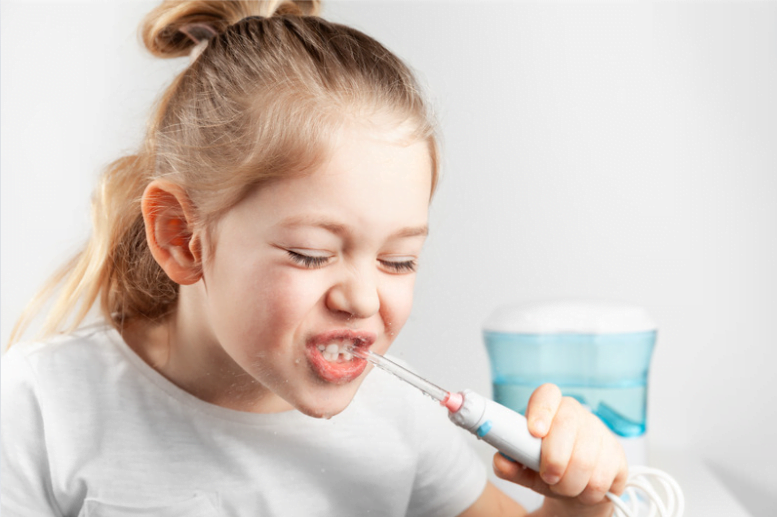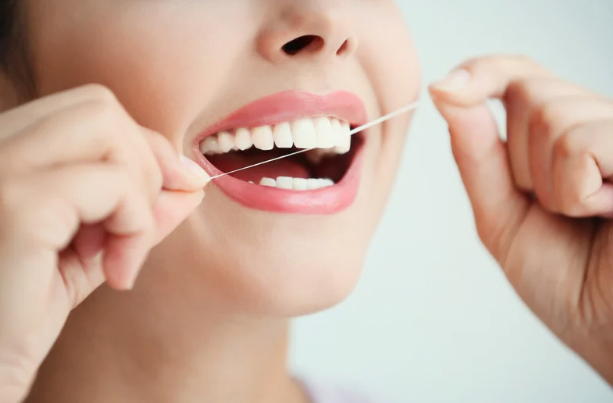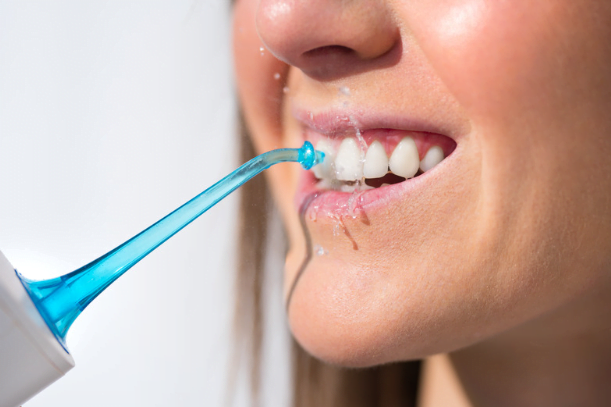
Maintaining excellent oral health is crucial for a dazzling smile and overall well-being. While brushing your teeth is fundamental, flossing plays an equally important role in removing plaque and preventing gum disease. Water flossers—a modern alternative to traditional string floss that’s gaining popularity for its effectiveness and ease of use. In this comprehensive guide, we’ll explore what water flossers are, compare them to standard dental floss, and provide expert tips on selecting the best water flosser for your needs.
What is a Water Flosser?
A water flosser, also known as an oral irrigator, is a device that uses a stream of pulsating water to remove food particles, plaque, and bacteria from between teeth and below the gumline. Unlike traditional string floss, which relies on manual effort to slide between teeth, water flossers harness the power of water pressure to achieve a thorough clean.
Key Features of Water Flossers:
- Pulsating Water Stream: Targets and dislodges debris effectively.
- Multiple Settings: Adjustable pressure levels for personalized comfort.
- Variety of Tips: Specialised tips for different dental needs, such as orthodontic or periodontal care.
- Ease of Use: Ideal for individuals with braces, implants, or limited dexterity.
Benefits:
- Enhances gum health by reducing inflammation and bleeding.
- More comfortable for people with sensitive gums.
- Can reach areas that traditional floss might miss.
Water Floss vs. Standard Dental Floss: Which is More Effective?


When it comes to flossing, the age-old debate between water flossers and traditional string floss continues. Let’s break down the pros and cons of each to help you decide which method suits you best.
Water Flossers: The Pros and Cons
Pros:
- Effective Plaque Removal: Studies suggest water flossers can remove up to 99.9% of plaque from treated areas.
- Gentle on Gums: Reduces the risk of gum irritation and bleeding, making it suitable for sensitive gums.
- Ease of Use: Especially beneficial for individuals with braces, bridges, or implants.
- Hydrotherapy Benefits: Stimulates gums and improves overall oral blood circulation.
Cons:
- Cost: Generally more expensive upfront compared to traditional floss.
- Portability: Bulkier and requires a power source, making it less convenient for travel.
- Learning Curve: May take some time to master the technique for optimal results.
Traditional String Floss: The Pros and Cons
Pros:
- Cost-Effective: Inexpensive and widely accessible.
- Portability: Easy to carry and use anywhere without the need for electricity.
- Thorough Plaque Removal: Effective when used correctly, particularly between tightly spaced teeth.
Cons:
- Technique Sensitive: Requires proper technique to avoid damaging gums.
- Time-Consuming: Can be more time-consuming and cumbersome, especially for those with dexterity issues.
- Limited Reach: May not effectively clean around dental appliances like braces or implants.
Is Water Flossing More Effective?
Effectiveness: Both water flossers and traditional floss can significantly improve oral hygiene when used consistently and correctly. However, water flossers may offer superior results for individuals with specific dental needs, such as braces or implants, due to their ability to reach areas that string floss might miss.
Personal Preference: The best choice often depends on personal preference and specific dental requirements. Some individuals find water flossers more comfortable and easier to use, while others prefer the simplicity and affordability of traditional floss.
Combination Approach: For optimal oral health, consider incorporating both methods into your routine. Use a water flosser for a general clean and traditional floss for targeted plaque removal between teeth.
Expert Tips: Choosing the Best Water Flosser from a Dentist’s Perspective
As a professional dentist, selecting the right water flosser can make a significant difference in your oral hygiene regimen. Here are the essential specifications to consider when purchasing a water flosser:
1. Water Pressure Settings
Look for a water flosser with adjustable pressure settings. This allows you to customise the intensity of the water stream to suit your comfort level and specific dental needs. Multiple settings ensure that you can start with a gentle flow and gradually increase as your gums become accustomed to the treatment.
2. Reservoir Capacity
A larger water reservoir means fewer refills during your flossing routine. Aim for a flosser with a reservoir capacity of at least 600 ml to ensure a comprehensive clean without interruptions. This is especially important for those with extensive dental work or larger mouths.
3. Tip Variety and Design
Different dental needs require different types of tips. Ensure the water flosser comes with a variety of nozzle options, such as:
Classic Jet Tip
For everyday flossing.


Orthodontic Tip
Specifically designed for braces and other orthodontic appliances.
Pik Pocket Tip
Ideal for cleaning around implants, bridges, and other dental work.


Tongue Cleaner Tip
- Helps in maintaining overall oral hygiene by removing bacteria from the tongue.
4. Ease of Use and Ergonomics
A user-friendly design with intuitive controls can make flossing a more pleasant experience. Features like ergonomic handles, easy-to-press buttons, and cordless or portable options add to the convenience, especially for individuals with limited hand mobility.
5. Noise Level
A quieter water flosser can make the flossing process more comfortable and less disruptive, particularly if you floss in the morning or evening when others are present.
6. Build Quality and Durability
Invest in a high-quality water flosser made from durable, BPA-free materials. A robust build ensures longevity and safe use over time. Reputable brands often offer warranties, providing additional assurance of the product’s quality.
7. Ease of Cleaning and Maintenance
Choose a water flosser that is easy to clean and maintain. Removable parts, dishwashersafe components, and designs that prevent mold and bacteria buildup are essential for long-term hygiene.
8. Portability and Storage
If you travel frequently, a compact and portable water flosser with a rechargeable battery can be a valuable asset. Additionally, consider models that are easy to store, especially if space is limited in your bathroom.
9. Advanced Features
Some water flossers come with advanced features such as:
- Timers: Ensure you floss for the recommended duration.
- Memory Settings: Save your preferred pressure and mode for consistent use.
- Smart Connectivity: Integration with smartphone apps for personalised oral care tracking.